“Why do you do this?” is one of the first questions I am often asked about my work with migrant death. This seems like such a simple question, one that would be easy to answer. But to be honest I couldn’t find the words to answer the first few times I was asked. I’m not sure how I came off as I stumbled for a response, or how my pause was interpreted. I was flustered not because I didn’t know how to answer, but I was surprised they had to ask. These are human beings who are refugees of extreme poverty and institutionalized violence. These are human beings who died trying to get to a place they thought would bring freedoms and safety. These are human beings who were invisible in life and who were being forgotten in death. These are human beings who have family members wondering what happened to them and where they are. But first and foremost, these are human beings. “Why wouldn’t I do this?” I wanted to ask in return. I am fortunate that I have a specialized skill set that allows me to contribute to the exhumations and identifications. I am lucky that I have a university that has “Education for Service” as its motto and supports my work on this mission. I am lucky I have graduate students who are passionate, dedicated and trained to work in these situations. I am lucky I have the support of my friends and family to do this. I am lucky. They were not. They are still human beings who have basic human rights and whose families have basic human rights. I do this not because I want to, because no one should want this amount of pain and suffering in our country. I do this because it’s the right thing to do. I wondered how my students would respond if I asked them the same question —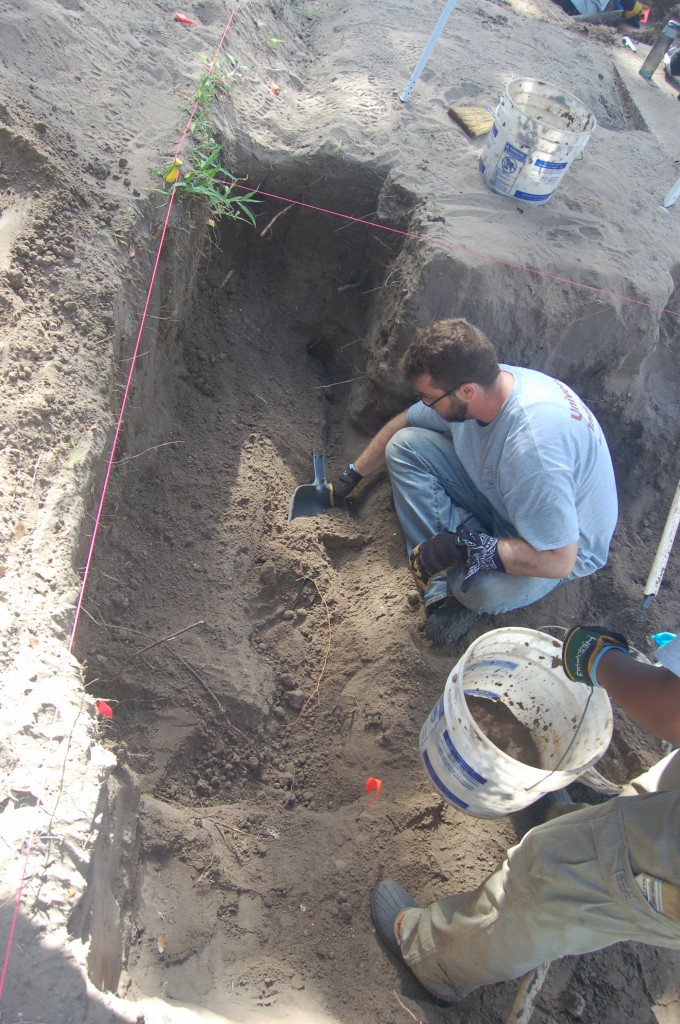
Justin: The reason I am here in Texas is to give a voice to those who cannot speak for themselves. The training we receive at UIndy has equipped us with a very special skill set. We are taught to both recover and help to identify skeletal remains. We are often the last resort, and can help to give a name to the unidentified when no one else can. Our goals are simple: Locate the remains of those who have been buried unceremoniously without a name and identify them so they can be returned to their families. I hope the work that we do will bring about closure for their families. I cannot fix the past or offer any sort of justice, but hopefully I can give families a place to mourn the loss of their loved ones.
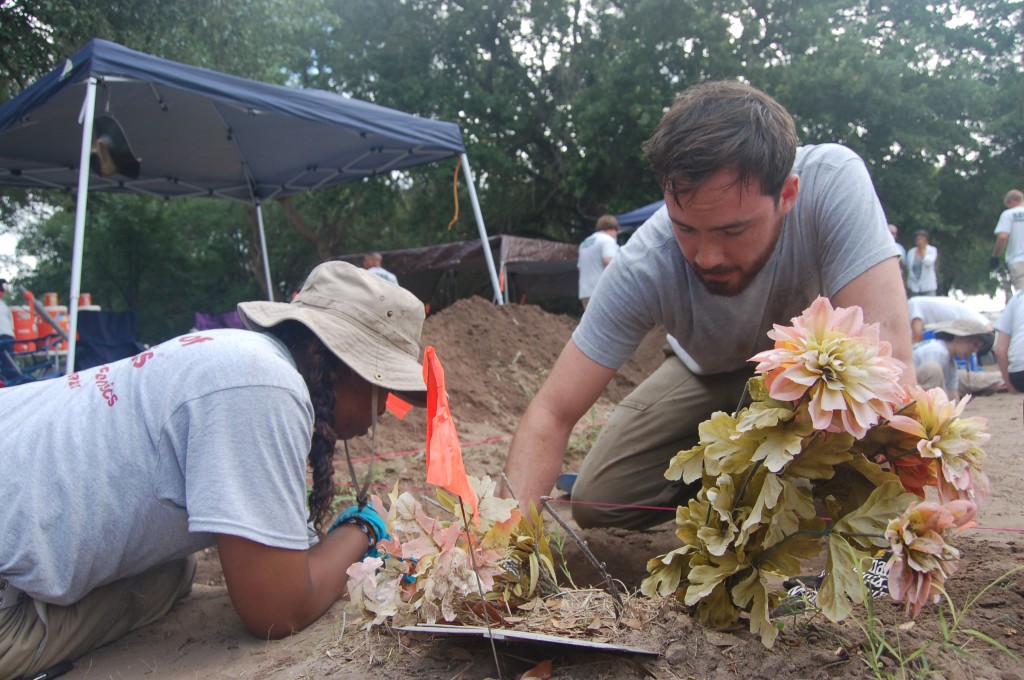 Ryan: First and foremost, I’m here to assist in any way I can, whether it is in the form of exhuming migrant remains in hopes of identifying them or in the form of interacting with locals to better understand and respect the depth of the crisis. As a student of anthropology I’m here to try and understand the culture behind the human rights crisis, including what it means to be a migrant, a border patrol agent, a human rights activist, a civilian living in a town affected by the crisis, a rancher, or any other individual with a unique perspective on the situation. As a field expert I’m here to teach students how to systematically, professionally, and respectfully exhume the remains while emphasizing the importance of the crisis. I also hope to instill in these students a sense of passion and drive to provide assistance and seek a better understanding of the complexity of the situation. But most importantly, as a human being I’m here to simply help in any way I can.
Ryan: First and foremost, I’m here to assist in any way I can, whether it is in the form of exhuming migrant remains in hopes of identifying them or in the form of interacting with locals to better understand and respect the depth of the crisis. As a student of anthropology I’m here to try and understand the culture behind the human rights crisis, including what it means to be a migrant, a border patrol agent, a human rights activist, a civilian living in a town affected by the crisis, a rancher, or any other individual with a unique perspective on the situation. As a field expert I’m here to teach students how to systematically, professionally, and respectfully exhume the remains while emphasizing the importance of the crisis. I also hope to instill in these students a sense of passion and drive to provide assistance and seek a better understanding of the complexity of the situation. But most importantly, as a human being I’m here to simply help in any way I can.
Erica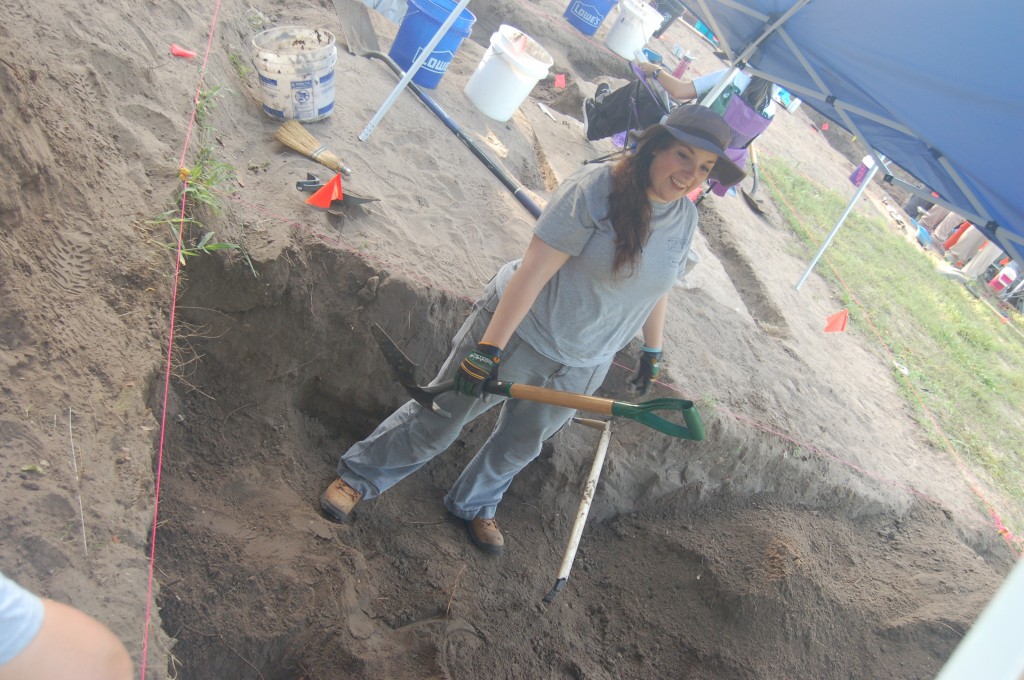 : Last year when I was invited to participate in this project I had no idea how connected I would become to the issue and the community. Research helped prepare me, but after being here last field season I knew I needed to return to Falfurrias. Hearing the stories from border patrol and locals are harrowing. This issue goes far beyond the scope
: Last year when I was invited to participate in this project I had no idea how connected I would become to the issue and the community. Research helped prepare me, but after being here last field season I knew I needed to return to Falfurrias. Hearing the stories from border patrol and locals are harrowing. This issue goes far beyond the scope
of Brooks County but no matter which side you are on, the number of individuals perishing alone in the desert is devastating. I came back this field season because this is just one small step to returning the missing to their despondent families, but it is a step to which I am able to contribute. I am here to help the wonderfully gracious Falfurrias community, to shed light on the plight of those trying to make it North for a better life, and to help find the ones that have gone missing but who should never be forgotten.
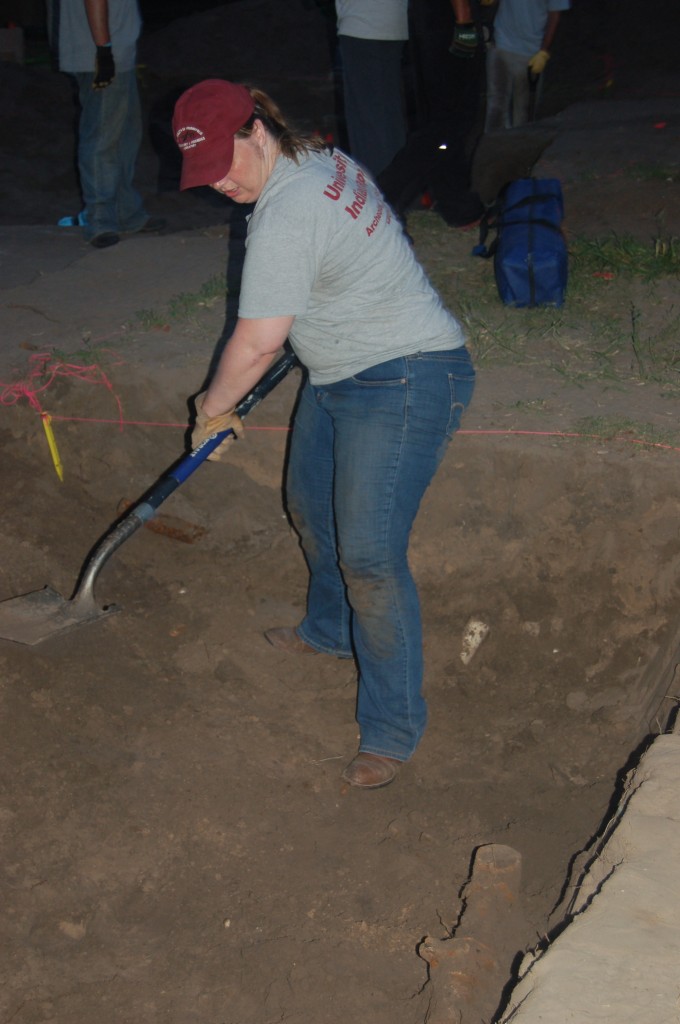 Jessica: The work we do in Falfurrias is extremely important. I am here because there is a need for the skills I (we) have that allow the exhumation of unidentified remains, which is the necessary first step in the identification and subsequent repatriation of migrants. Every unidentified in Sacred Heart Cemetery has a mother, father, brother, sister or children, that know they are lost and are looking for them, hoping for answers that will never come if they are not exhumed first. I think, “How would I feel if my family member disappeared and I never found out what happened to them?” These migrants sacrifice more than we can comprehend to come here for a better life for their families. We have the knowledge and skills that can help give a voice to those that can’t find their way anymore. Frankly, anything I can do to help this crisis in Brooks County, to help with the basic human right to life (and death) is why I am in in Falfurrias.
Jessica: The work we do in Falfurrias is extremely important. I am here because there is a need for the skills I (we) have that allow the exhumation of unidentified remains, which is the necessary first step in the identification and subsequent repatriation of migrants. Every unidentified in Sacred Heart Cemetery has a mother, father, brother, sister or children, that know they are lost and are looking for them, hoping for answers that will never come if they are not exhumed first. I think, “How would I feel if my family member disappeared and I never found out what happened to them?” These migrants sacrifice more than we can comprehend to come here for a better life for their families. We have the knowledge and skills that can help give a voice to those that can’t find their way anymore. Frankly, anything I can do to help this crisis in Brooks County, to help with the basic human right to life (and death) is why I am in in Falfurrias.
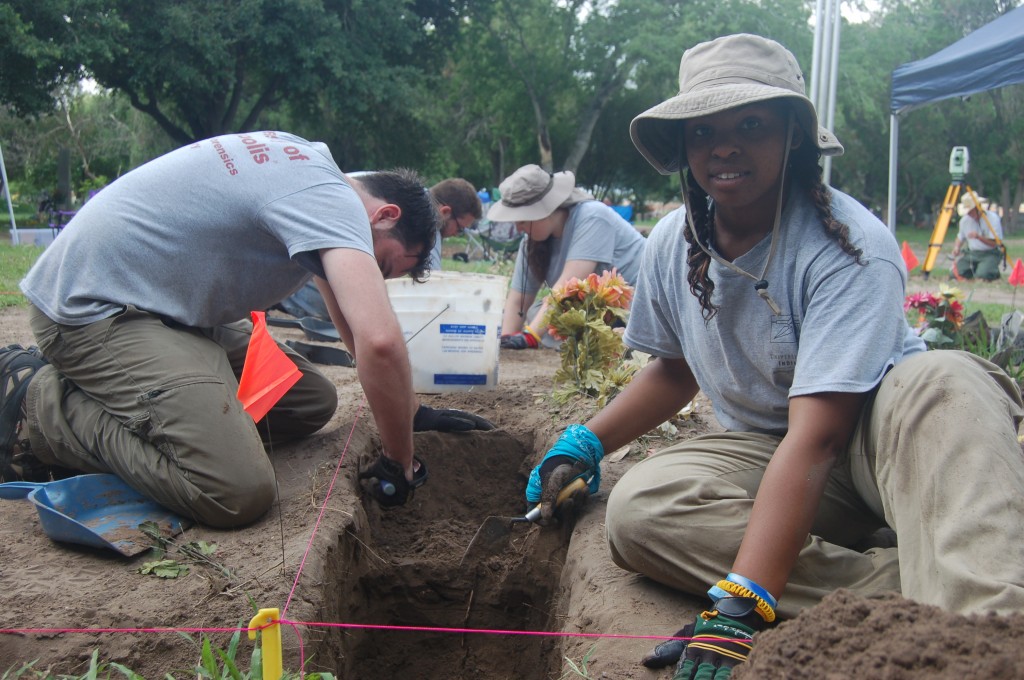
Cheneta: Originally I came here because forensics is a career that I would love to be a part of. I was asked to join the UIndy team and I knew that it would be a great opportunity. If I were serious about forensic science this was a trip that would reassure if this was a career I wanted. But it wasn’t until after I got to Falfurrias that I really learned why I was here. While I have been here, I have been introduced to the story and the background of the work we are doing. So now I know that I am here not only because it’s an opportunity but because it is making a difference. The migrants coming to the United States trying to live a better life but not making it deserve to be found and identified to be returned to their families. We are here – well I am here because people deserve to know where their loved ones are and it they are alive. If there they are not they deserve to make peace with that individual.
I am continually in awe of the professionalism, maturity and dedication of the University of Indianapolis Human Biology Students. The human rights crisis on the border is complex, and our work there is physically and mentally exhausting. Yet they don’t complain and they don’t think of themselves. They continually reflect on ways in which science can contribute to closure for the families and ways in which they can grow from this experience and bring awareness to the crisis.
~KEL
